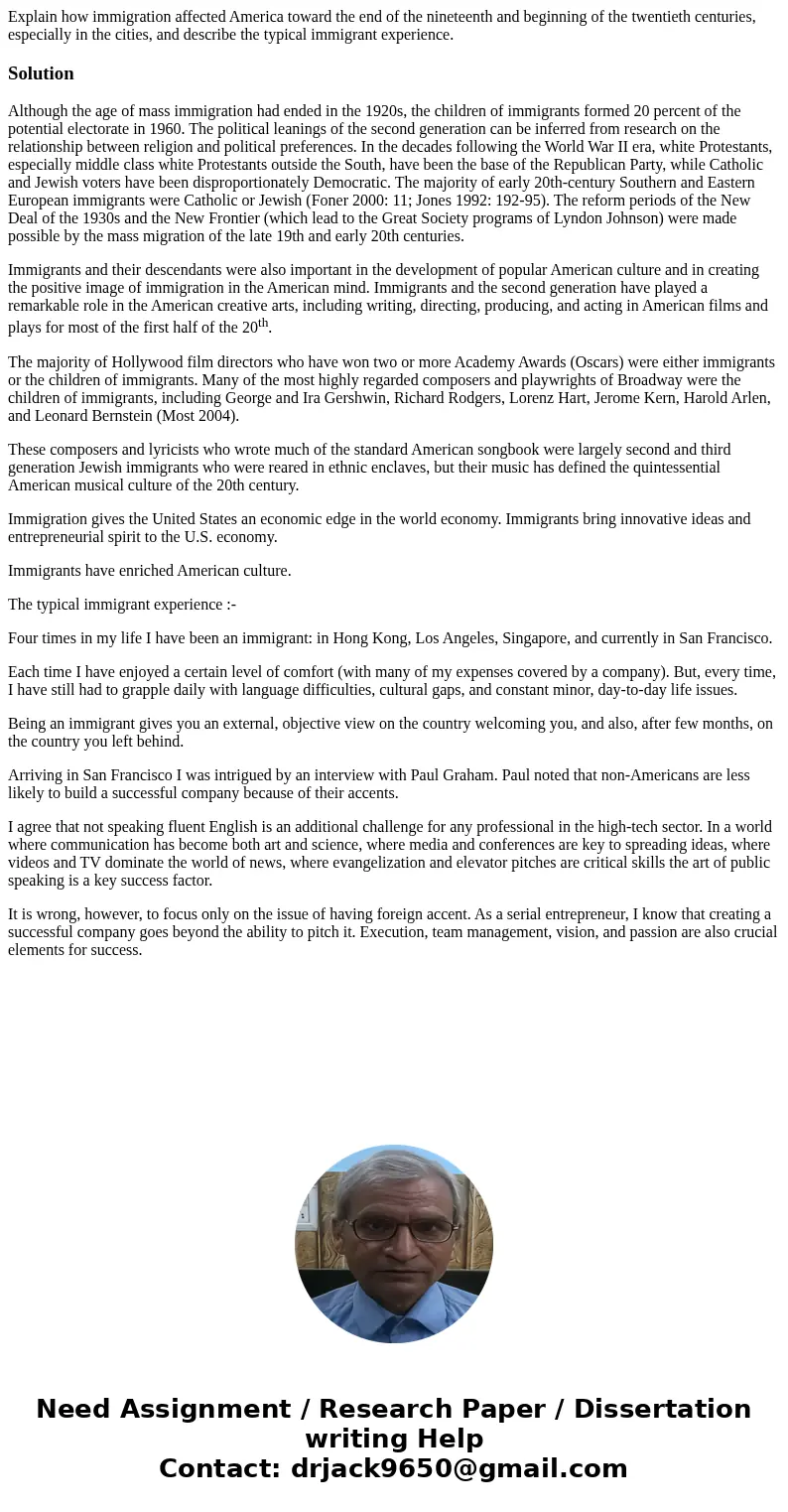Explain how immigration affected America toward the end of t
Explain how immigration affected America toward the end of the nineteenth and beginning of the twentieth centuries, especially in the cities, and describe the typical immigrant experience.
Solution
Although the age of mass immigration had ended in the 1920s, the children of immigrants formed 20 percent of the potential electorate in 1960. The political leanings of the second generation can be inferred from research on the relationship between religion and political preferences. In the decades following the World War II era, white Protestants, especially middle class white Protestants outside the South, have been the base of the Republican Party, while Catholic and Jewish voters have been disproportionately Democratic. The majority of early 20th-century Southern and Eastern European immigrants were Catholic or Jewish (Foner 2000: 11; Jones 1992: 192-95). The reform periods of the New Deal of the 1930s and the New Frontier (which lead to the Great Society programs of Lyndon Johnson) were made possible by the mass migration of the late 19th and early 20th centuries.
Immigrants and their descendants were also important in the development of popular American culture and in creating the positive image of immigration in the American mind. Immigrants and the second generation have played a remarkable role in the American creative arts, including writing, directing, producing, and acting in American films and plays for most of the first half of the 20th.
The majority of Hollywood film directors who have won two or more Academy Awards (Oscars) were either immigrants or the children of immigrants. Many of the most highly regarded composers and playwrights of Broadway were the children of immigrants, including George and Ira Gershwin, Richard Rodgers, Lorenz Hart, Jerome Kern, Harold Arlen, and Leonard Bernstein (Most 2004).
These composers and lyricists who wrote much of the standard American songbook were largely second and third generation Jewish immigrants who were reared in ethnic enclaves, but their music has defined the quintessential American musical culture of the 20th century.
Immigration gives the United States an economic edge in the world economy. Immigrants bring innovative ideas and entrepreneurial spirit to the U.S. economy.
Immigrants have enriched American culture.
The typical immigrant experience :-
Four times in my life I have been an immigrant: in Hong Kong, Los Angeles, Singapore, and currently in San Francisco.
Each time I have enjoyed a certain level of comfort (with many of my expenses covered by a company). But, every time, I have still had to grapple daily with language difficulties, cultural gaps, and constant minor, day-to-day life issues.
Being an immigrant gives you an external, objective view on the country welcoming you, and also, after few months, on the country you left behind.
Arriving in San Francisco I was intrigued by an interview with Paul Graham. Paul noted that non-Americans are less likely to build a successful company because of their accents.
I agree that not speaking fluent English is an additional challenge for any professional in the high-tech sector. In a world where communication has become both art and science, where media and conferences are key to spreading ideas, where videos and TV dominate the world of news, where evangelization and elevator pitches are critical skills the art of public speaking is a key success factor.
It is wrong, however, to focus only on the issue of having foreign accent. As a serial entrepreneur, I know that creating a successful company goes beyond the ability to pitch it. Execution, team management, vision, and passion are also crucial elements for success.

 Homework Sourse
Homework Sourse